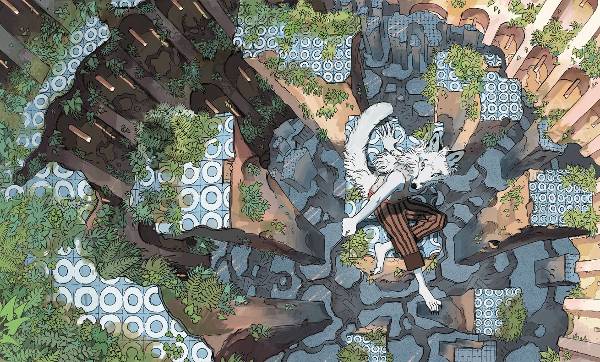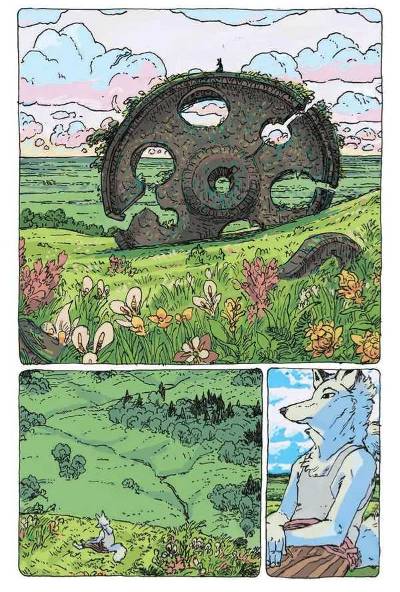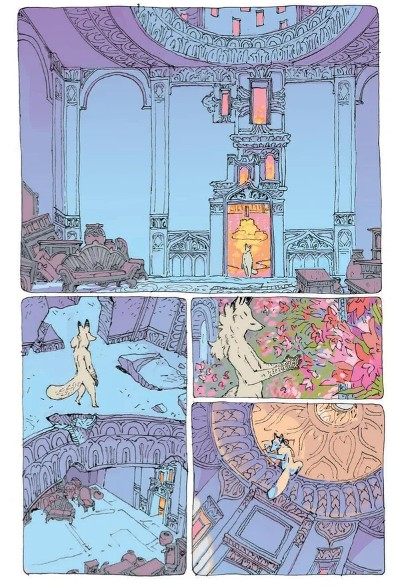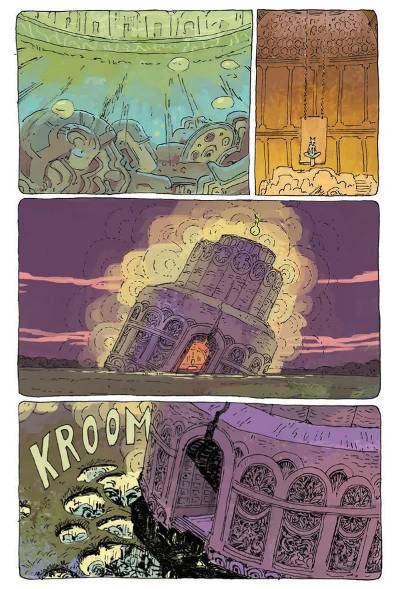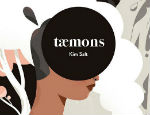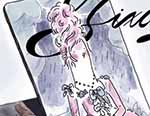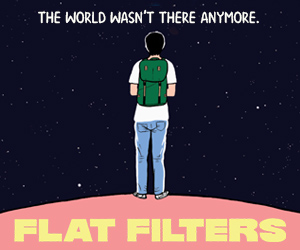I have spoken a lot at Broken Frontier recently about the particular skills needed to communicate a wordless narrative in comics. What I probably haven’t discussed in quite so much detail is the special relationship that is fostered between creator and reader in such “silent” comics. Without dialogue or narration to provide exposition the audience must invest themselves in characters on an entirely different interpretive plane; understanding of emotion, intent and motivation all requiring the reader to immerse themselves in protagonists on an altogether more instinctual level. Jack T. Cole’s fantasy short Temple from Shortbox is a solid example of this form of comics storytelling; a one-shot that, with the exception of three panels of brief captioning early on, is propelled entirely by the movement of its main character.
On what could be an alien world or a radically transformed Earth, a humanoid “foxling” finds a relic from another era (and possibly another civilisation) – a giant gear that was once part of a floating temple that crashed to the ground in flames uncountable years before. Investigating further he finds the ruins of the temple itself and, as building and creature begin to interact, a magical rebirth begins…
Temple is a story that allows the reader to take their own meaning from its pages. It can be read on a surface level as simply an enchanting fantasy quest, or the reader can infer something more allegorical from its pages if they so desire. A meditation on the ebb and flow of civilisations perhaps, or on the impermanence of the status quo, or even as a spiritual exploration of being in perfect tune with your surroundings. What makes this connection between reader and page even more interactive is that we’re asked to fill in the narrative gaps around the main action; to speculate on the nature of this world and the events that led to what we view in these 30 or so gorgeously illustrated pages.
If you have been following Cole’s serial genre comics work you’ll be unsurprised to hear every page here has a hypnotic quality. This is an environment that feels simultaneously recognisable and alien; one that juxtaposes a sprawling countryside of familiar fields and trees with eerie skylines and incredible constructions. Cole’s colour palette – sometimes bright and vibrant, sometimes moody and subdued – is a vital part of the book’s atmospheric effectiveness, while constant changes in perspective give us a true sense of the enormity of this world and its ruined majesty.
Handsomely presented with a tactile quality, Temple is a also a poignant reminder of what will be lost when Shortbox shut up shop this year. Quite frankly, the “endpapers”, so to speak, are worth the price of admission alone.
Jack T. Cole (W/A) • Shortbox, £9.00
Review by Andy Oliver





